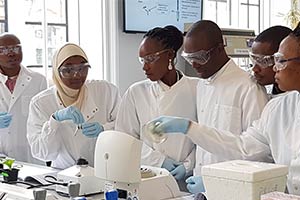The government expects to have signed contracts with investors willing to set up manufacturing sites in Mwanza, Mbeya and Kibaha under public-private partnership (PPP) by next June.
The government has embarked on a Sh1.2 trillion ($517 million) pharmaceutical project that will see three manufacturing plants being established through partnership with private investors.
The feasibility study for the project has been approved, and the next step is to identify partners as part of efforts to reduce the country’s reliance on pharmaceutical imports.
Dr John Mboya, the PPP commissioner in the Ministry of Finance and Planning, told the International Pharmaceuticals Investors Conference in Dar es Salaam that potential investors were assured of a ready market.
He further stated that, “these are feasible projects which may take four to six years to break even. The government has given assurance to the investors. We have the domestic, EAC and SADC markets.”
Dr Mboya added that the feasibility study had considered vital lessons from pharmaceutical industries in Kenya, Uganda and other countries.
A $63 million plant that will produce intravenous fluids is expected to be built in Mbeya, while Mwanza will be the location of a medical cotton wool manufacturing plant whose cost is estimated at $46 million. The general pharmaceutical factory at Kibaha is likely to cost $408 million, according to Dr Mboya.
According to the World Health Organisation, United Nations Comtrade and Business Monitor International, Tanzania’s pharmaceutical market is expected to grow to $700 million by 2021 from $450 million in 2017.
Trade and Industry minister Innocent Bashungwa, said, “Just recently, the government abolished 54 charges in an attempt to reduce the burden on investors. We also have tax incentives provided through the Tanzania Investment Centre, and the government is currently reviewing laws that are seen to impede business. Tanzania is the right place for you to invest.”


